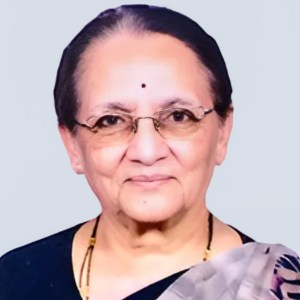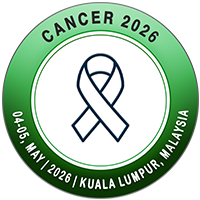
Jayashree Joshi
Kasturba Health Society-Medical Research Centre, IndiaPresentation Title:
Anticancer activity of Curcuma longa and Tinospora cordifolia: Experience in clinical studies, biological plausibility, and literature review
Abstract
Scientific investigations and rational use of standardised extracts of several Ayurvedic medicinal plants have been demonstrated with safety and anticancer activity in clinical settings. Current presentation will briefly review clinical studies on anticancer activity of Curcuma longa and Tinospora cordifolia. Extracts or isolated bioactive molecules from these plants have shown activity against several cancers in in-vitro and in-vivo models. Curcuma longa and Tinospora cordifolia are also used for several other medical indications such as inflammatory conditions, immunological disorders, non-healing ulcers and as an antiaging & rejuvenative agent (called as Rasayanas). Based on Ayurvedic pharmacodynamic properties, biological plausibility and rationality of Curcuma longa and Tinospora cordifolia will be discussed. Although Ayurvedic physicians have been using Curcuma longa and Tinospora cordifolia currently for management of cancer conventional evidence-based clinical reports are few in the world literature. It is only in the last few decades that some notable studies on these plants, or on bioactive molecules isolated from these plants, have been published on their clinical use for cancer prevention, complementary to cancer therapy, or as palliative therapy. This presentation will review the rationale and the outcomes of selected studies, including our experiences of conducting clinical studies with Curcuma longa and Tinospora cordifolia in pre-cancer and as cancer complementary respectively. We suggest that the use of Ayurvedic preventive or complementary therapy should be taken under supervision of a medical expert and not as an over-the-counter therapy nor as a dietary supplement or nutraceutical product.
Biography
Jayashree Joshi is a gynecologist (MD in Ob/GYN) and clinical researcher (PhD in Biochemistry-Clinical Pharmacology / Pharmacokinetics) and trained in gynecologic cytology and colposcopy. She was earlier Deputy Director, NIRRCH, Indian Council of Medical Research. She has designed and conducted studies on the efficacy, and bioavailability of oral, injectable, implantable, intrauterine, and vaginal contraceptive steroids; hormone-drug interactions with antitubercular, antimalarial, and other drugs, early diagnosis of cervical cancer and precancer. She has participated in Phase 1 to 4 of clinical trials of hormonal and nonhormonal contraceptives like Intrauterine devices and Vaginal microbicides. She has also reported on the diagnosis and prevalence of common RTIs in different groups of women including HIV positive women, and their association with cervical cancer and precancer. She has experience of rural service based research for contraceptive utilization and anemia. After retirement from ICMR, she joined the Kasturba Health Society-Medical Research Centre’s team and has participated research on RTIs, cervical cancer prevention, drug interactions, heavy menstrual bleeding, subclinical hypothyroidism, menopause, and medicinal plants. Currently, she is involved in projects on plant products for non-alcoholic fatty liver disease (National Multicentric Study), cancer complementary therapy, cervical cancer chemoprevention, and anemia. She has about 150 publications with more than 1000 citations.

